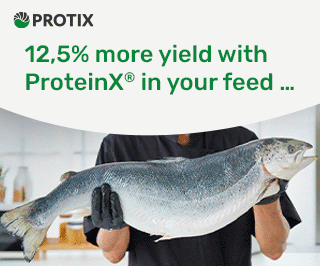Faroese salmon producer Bakkafrost is dramatically scaling back its investment plans in Scotland, announcing cuts of DKK 300 million ($45 million) in 2024 and a further DKK 500 million ($75 million) in 2025 compared to the investment levels announced in the company’s 2024- 2028 investment plan.
Bakkafrost’s Scottish operations have once again proved a thorn in the side of the Faroese salmon giant, as heavy losses in the region prompt the company to scale back its ambitious investment plans.
In Q3 2024, Bakkafrost Scotland posted an operational EBIT loss of DKK 137 million ($20.55 million), a hit that has led the company to announce DKK 800 million ($120 million) in capital expenditure cuts over the next two years.
The losses are part of a broader struggle in Scotland, where Bakkafrost has faced recurring challenges since acquiring the Scottish Salmon Company in 2019. For Q3 2024, operational EBIT per kilogram remained deeply in the red at DKK -33.14 ($-4.97), despite an improvement from DKK -68.70 ($-10.31) in Q3 2023. Revenue in the Freshwater Scotland segment also fell sharply, down 42% year-on-year to DKK 29 million, reflecting the combined pressures of operational hurdles and lower salmon prices.
Despite efforts to stabilize its Scottish division, Bakkafrost has faced significant biological challenges. Incident-based costs from issues such as mortality and sea lice amounted to DKK 34 million ($5.1 million) in Q3, although this was an improvement from DKK 178 million in Q3 2023. Additionally, lower smolt transfer weights have affected Bakkafrost’s capacity to turn a profit in Scotland. The average smolt weight fell to 86 grams in Q3 2024, a 23% drop compared to the same period last year, indicating ongoing production issues.
Originally, Bakkafrost had committed to a DKK 6.2 billion ($886 million) investment program for 2022-2026, including major upgrades in Scotland to align with its Faroese operations. However, in light of these setbacks, Bakkafrost will now reduce its investment by DKK 300 million ($45 million) in 2024 and a further DKK 500 million ($75 million) in 2025. Planned projects, such as the construction of a new processing plant and additional hatchery at Fairlie, are likely to be delayed as Bakkafrost prioritizes core operations and biosecurity improvements over expansion.
This strategic retreat underscores the ongoing difficulties Bakkafrost faces in transforming its Scottish operations, even as the company pursues its “One Company” strategy to unite its Faroese and Scottish divisions. With the cuts, Bakkafrost is adopting a more cautious approach, focusing on core infrastructure and cost management in an attempt to contain losses and stabilize its presence in Scotland.
For now, the company remains hopeful for a market recovery, forecasting stronger salmon prices in early 2025. The full impact of these cuts is expected to unfold over the coming quarters, as Bakkafrost recalibrates its Scottish ambitions.



